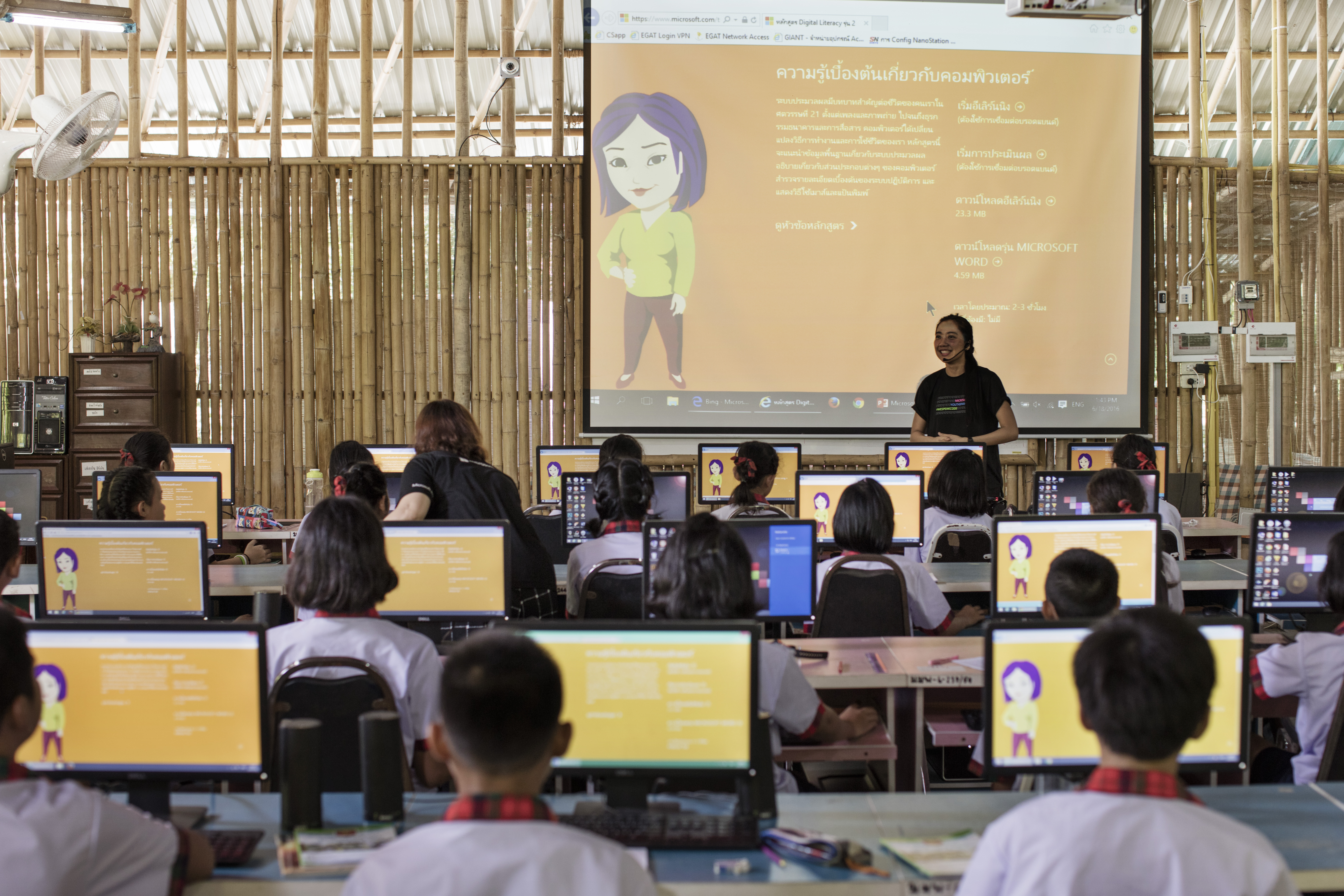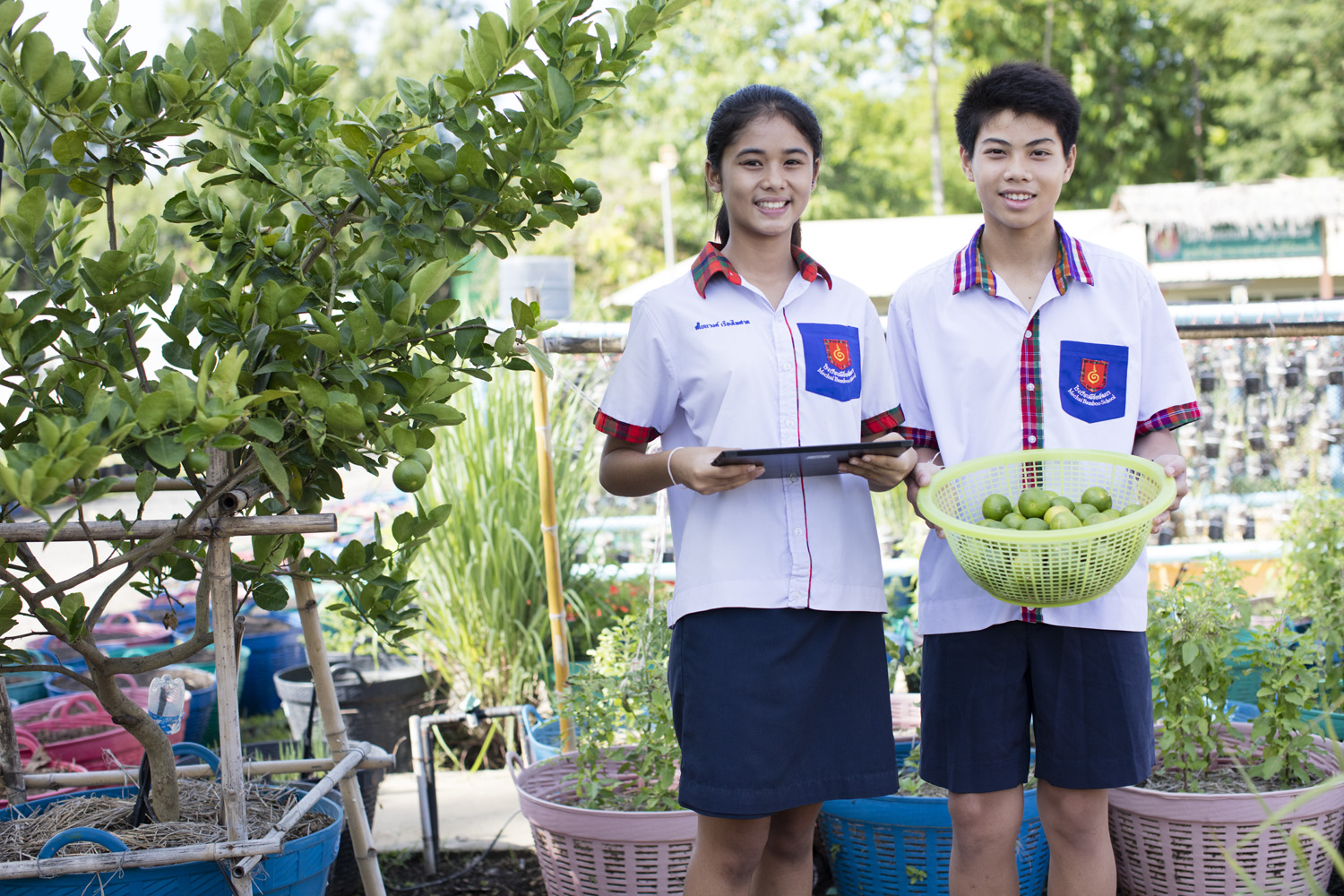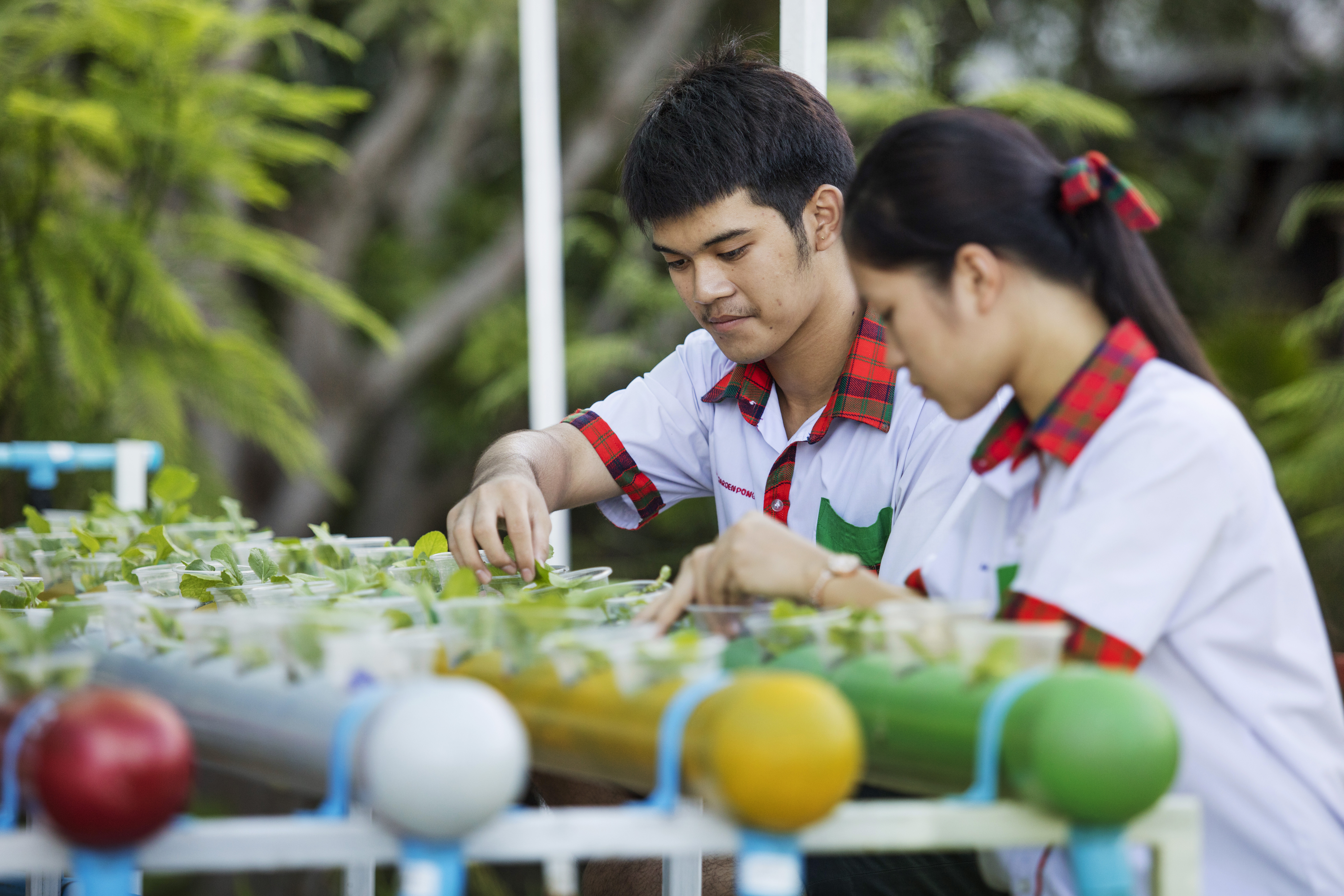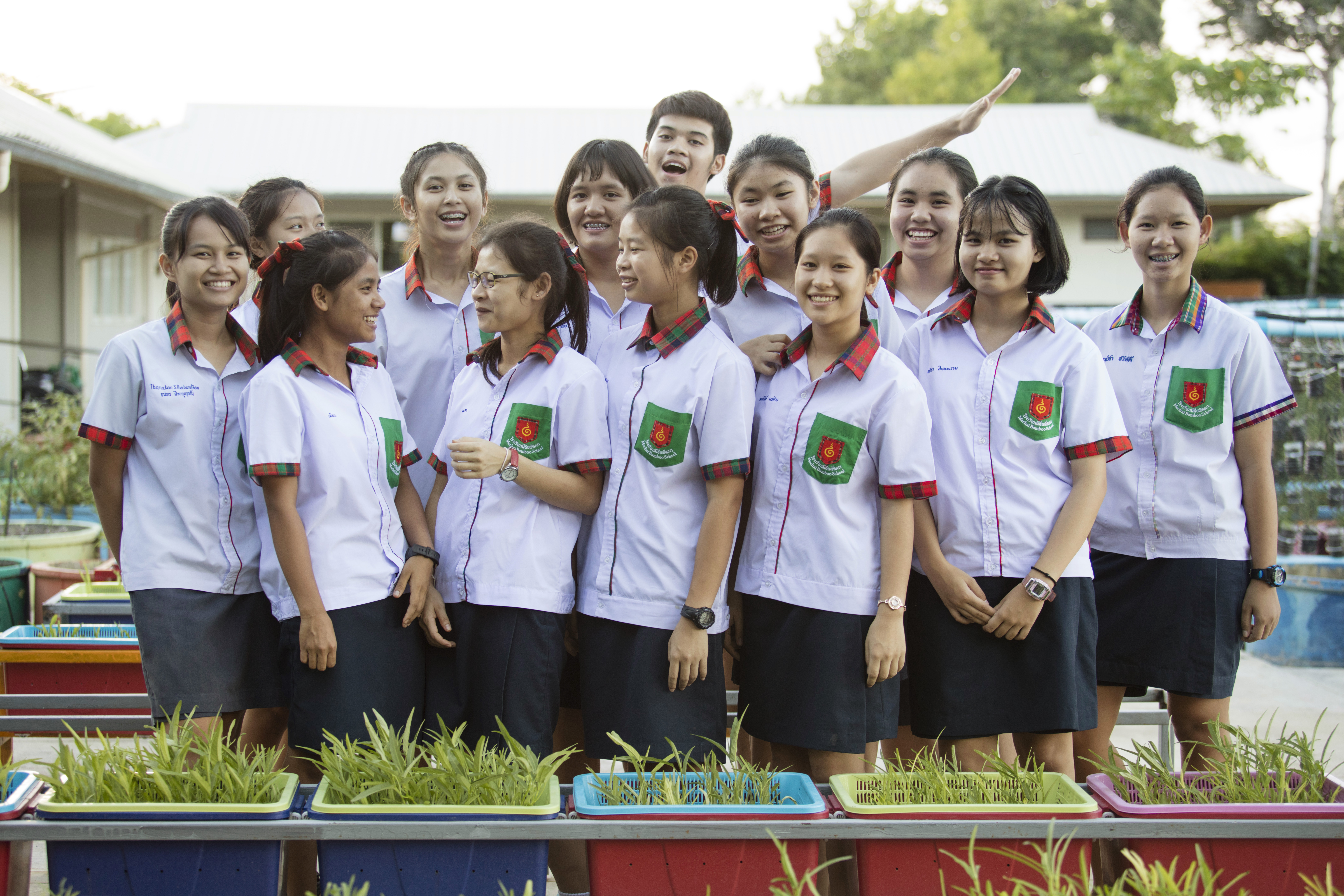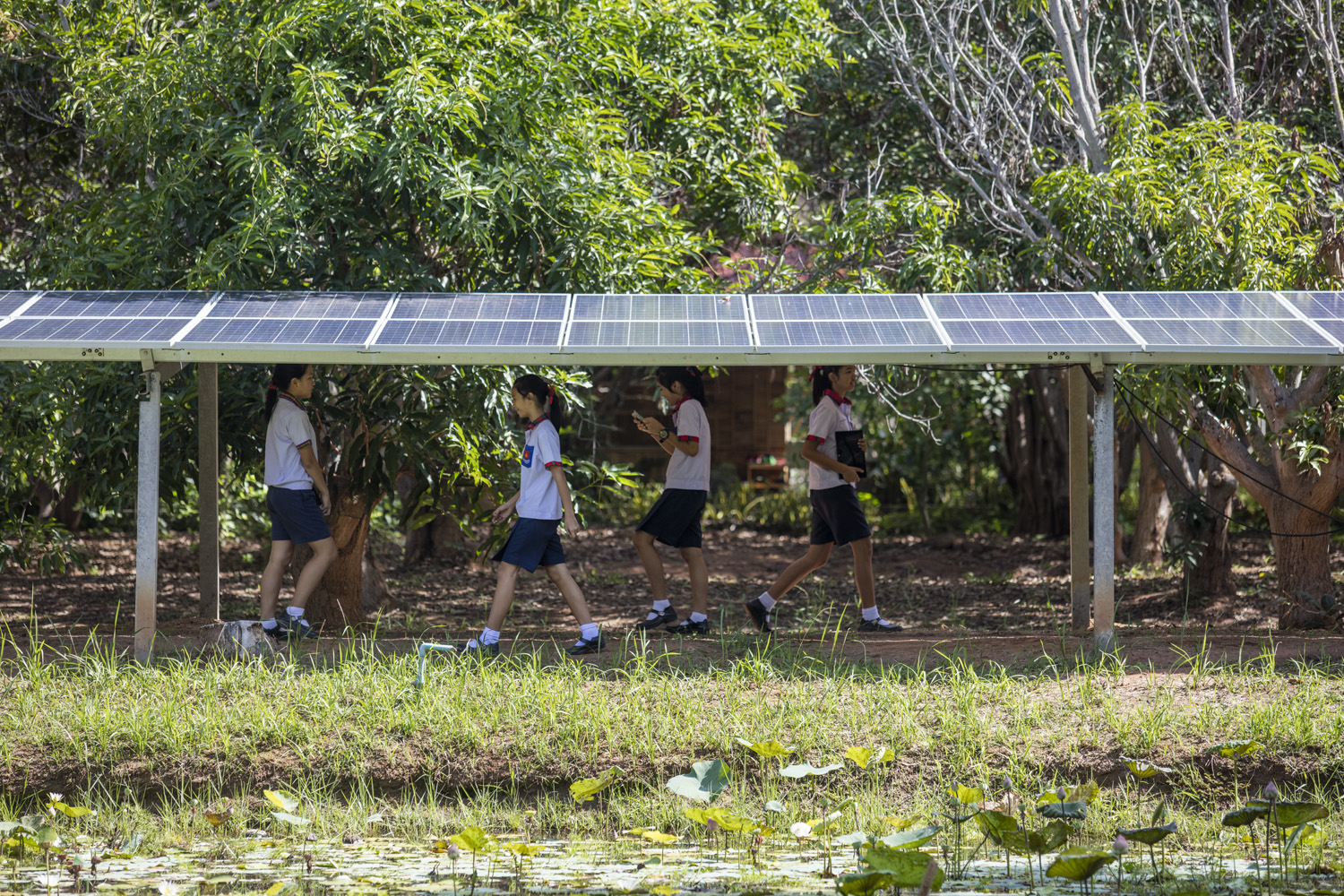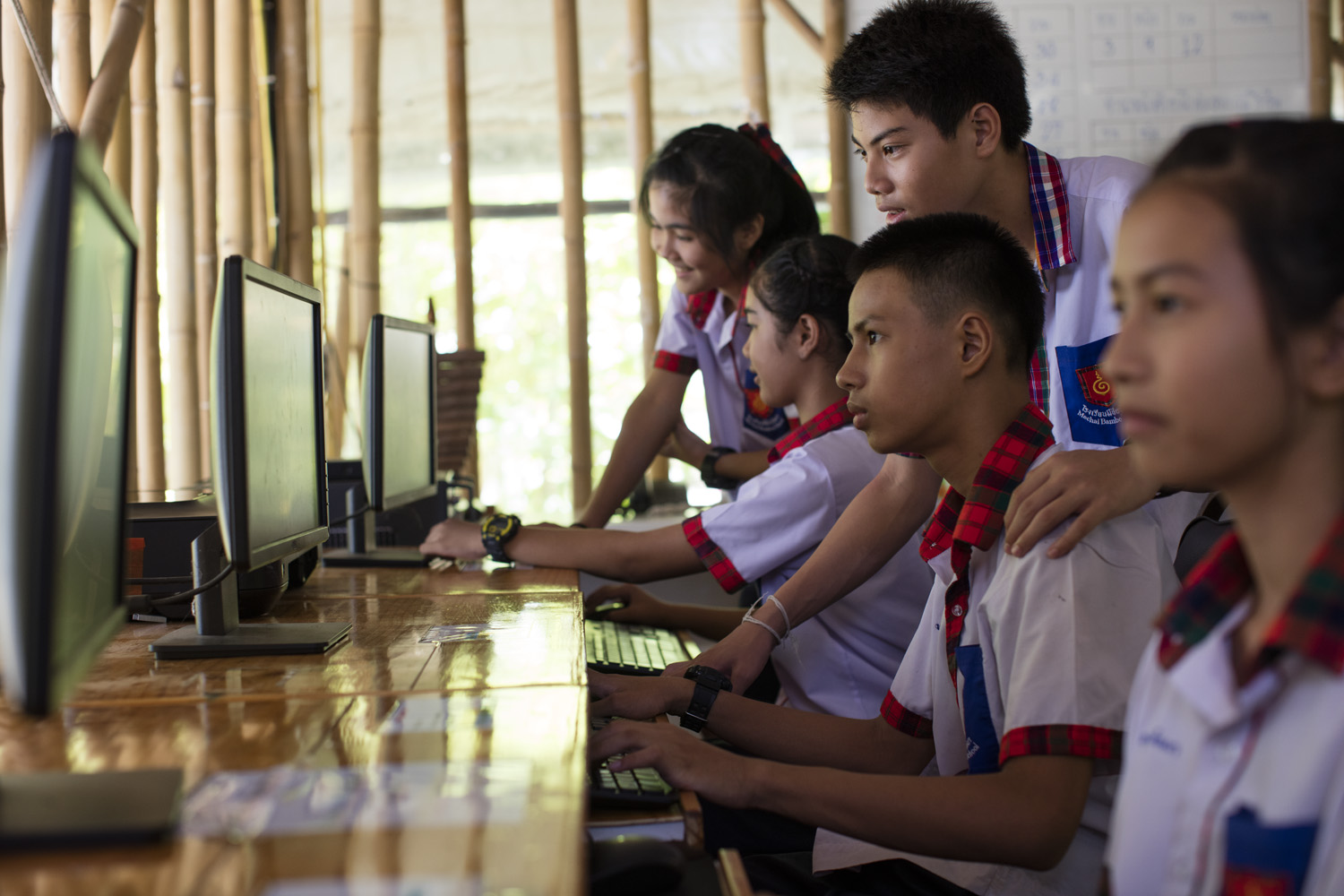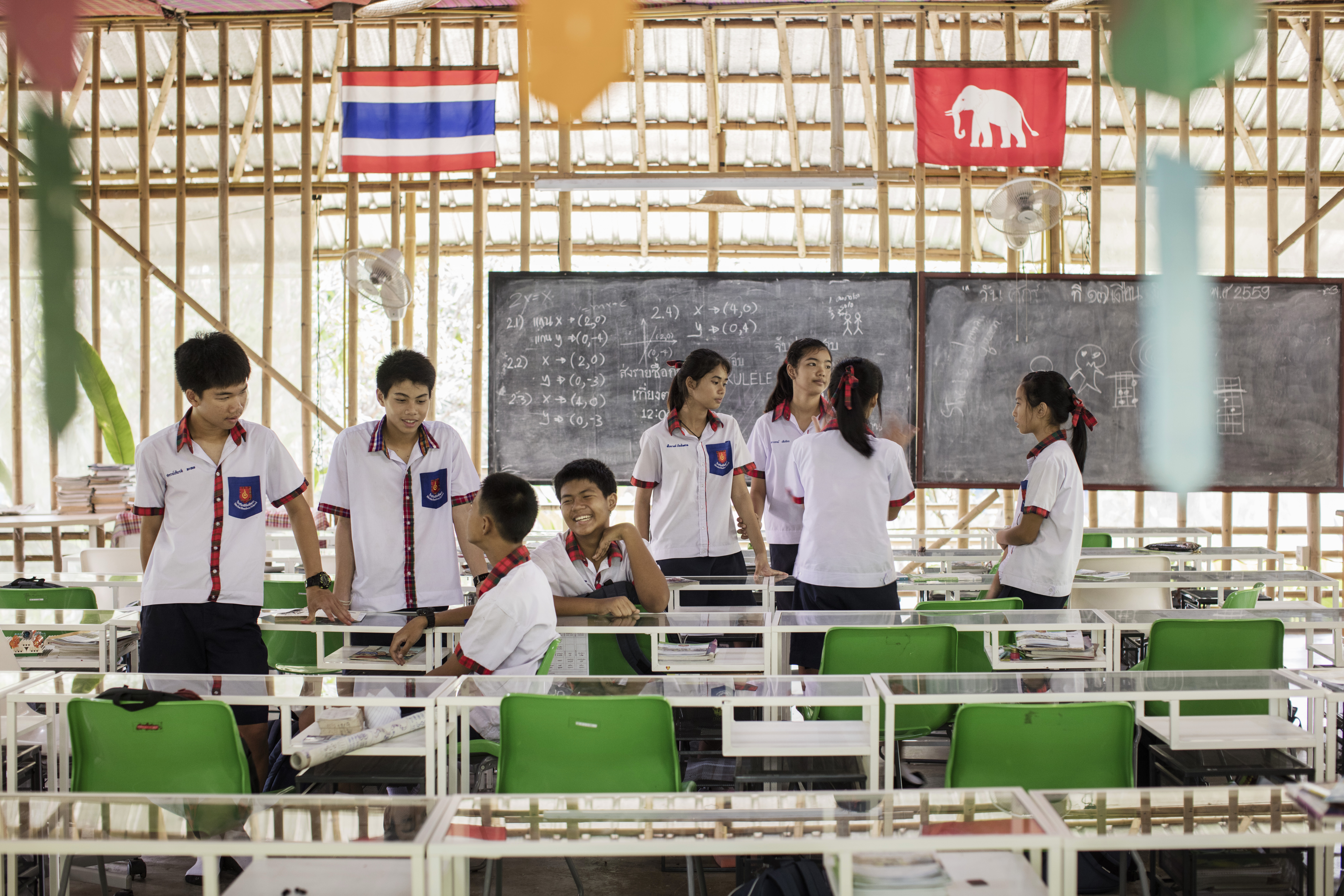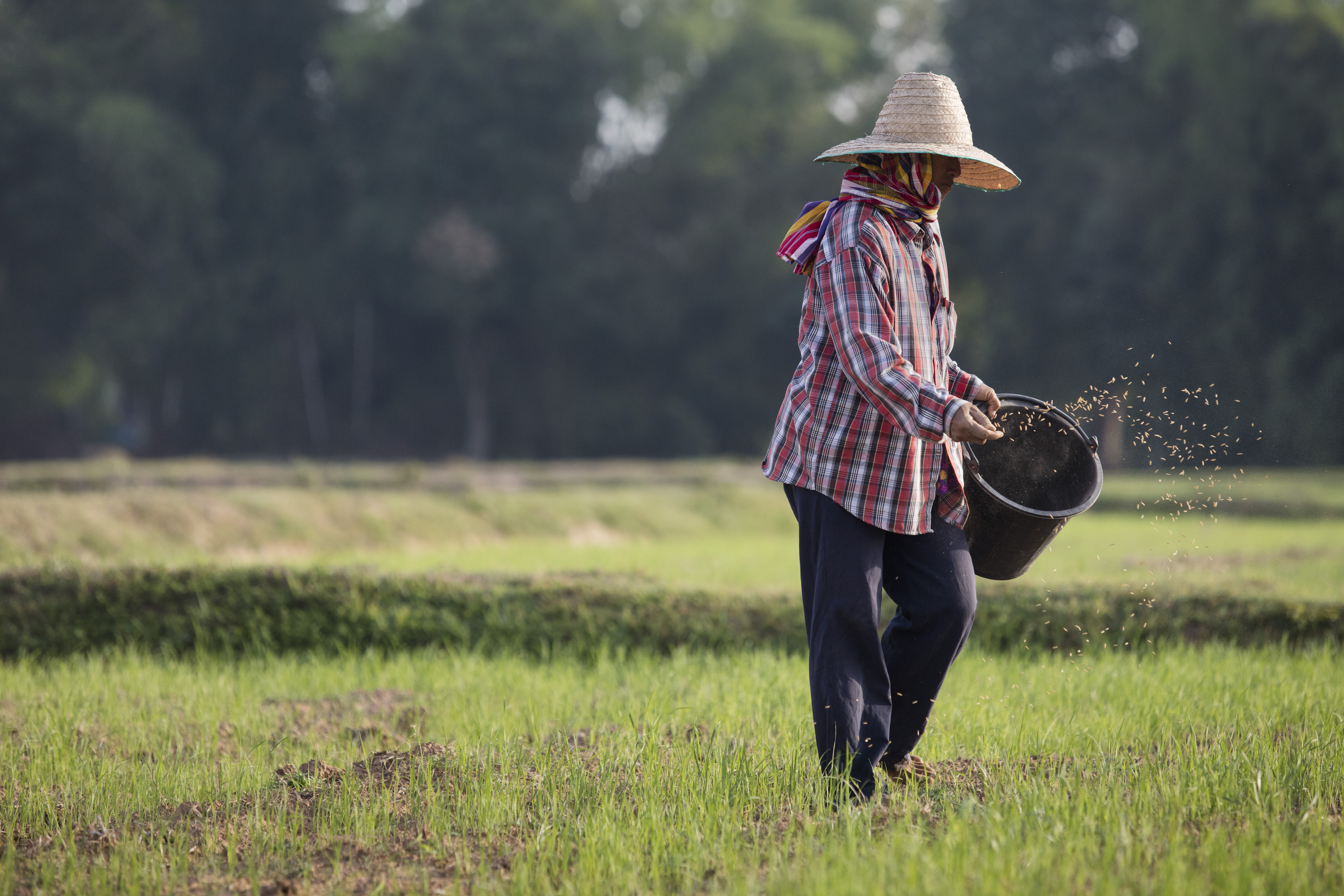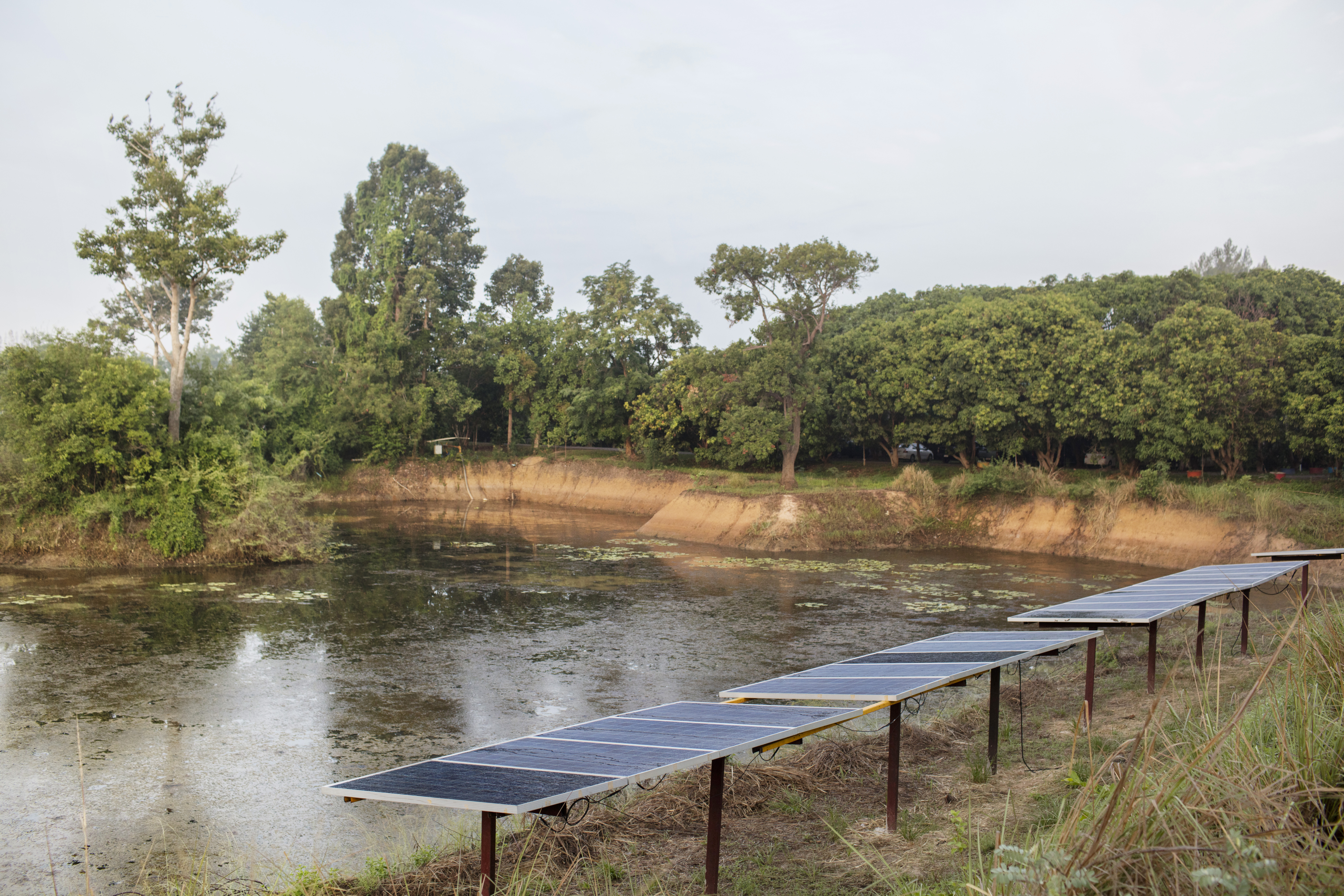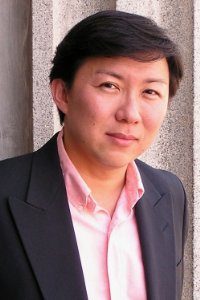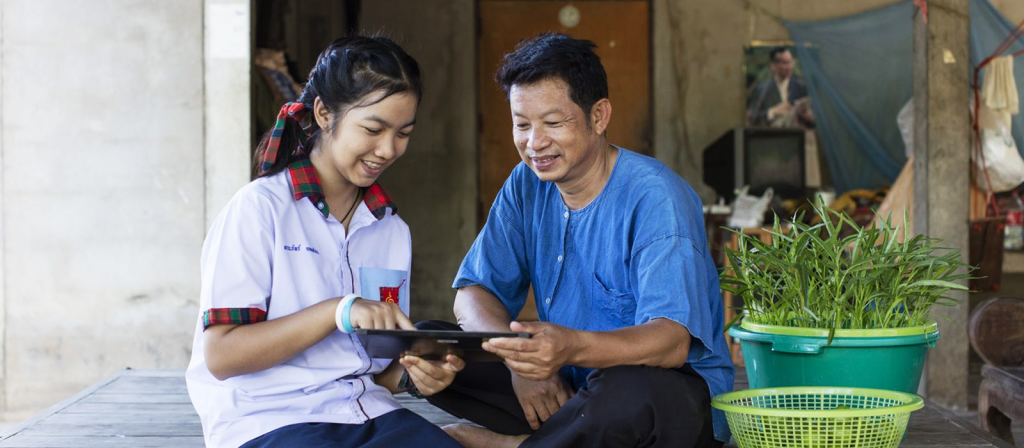
Public cloud lifting lives across Asia
Anatta Chaikot (her friends call her “Sai”), 19, is a graduate of a whole new way of learning in Thailand, powered by cloud technology.
The Mechai Pattana (“Bamboo” in Thai) School in Buriram province, four hours’ drive from the capital Bangkok, is a role model for the country’s 30,000 schools. The game-changing idea is this: A school is not just a place to educate young people, but a “lifelong learning centre” using public cloud – the availability of resources, such as data and storage services, over a network for public use – to also serve everyone else in the community. Currently, the school is helping up to 70 other schools a year to adjust to this “Bamboo School way”.
Sai is typical of millions of other village children in Thailand who live with grandparents because their parents had to move to cities or overseas to find work. It would have not been a surprise if she had grown up to eventually find a job in the city in a factory or shop. But her life – thanks to Bamboo School – has allowed her to take a different path, as the public cloud has the potential to bring more equity in economic opportunities for millions of people in Thailand.
Sai and her classmates use software on cloud-connected devices, such as the Microsoft digital storytelling app Sway, to learn and share new ways of agriculture that they put into practice in class and at home. The magic of the cloud is its capacity to spark, and to spread, great ideas instantaneously, not just wisdom from textbooks but even an idea right this moment from your classmate, village neighbour, or you yourself. Shared access – such as at the Bamboo School – also means there is no need for everyone to have their own device or to be able to afford an Internet connection.
And the outcomes can be dramatic, even delicious, in a manner of speaking. Lime – a key ingredient in the spicy Thai dish, tom yam soup – is grown on Bamboo School grounds using a technique invented by a local farmer. The lime plant is starved in September (by placing cement at the base of planting baskets) to adjust its growth cycle, to coax it to fruit out of season between March and May, and so, to fetch 10 times the normal price from local restaurants.
Seniors of all ages, including farmers from Sai’s grandparents’ generation, come to the Bamboo School to learn farming in the school’s gardens while classes are on, or outside classroom time. The lime fruit manipulation method can be practised by anyone at home – out of plastic bottles, hanging on fences; anywhere will do. Students also help set up this new type of farm in the village. A farm of just 20 by 10 square meters can make 20 times the government pension – a massive boost in personal standard of living in a nation where some six million people live on just US$3 a day.
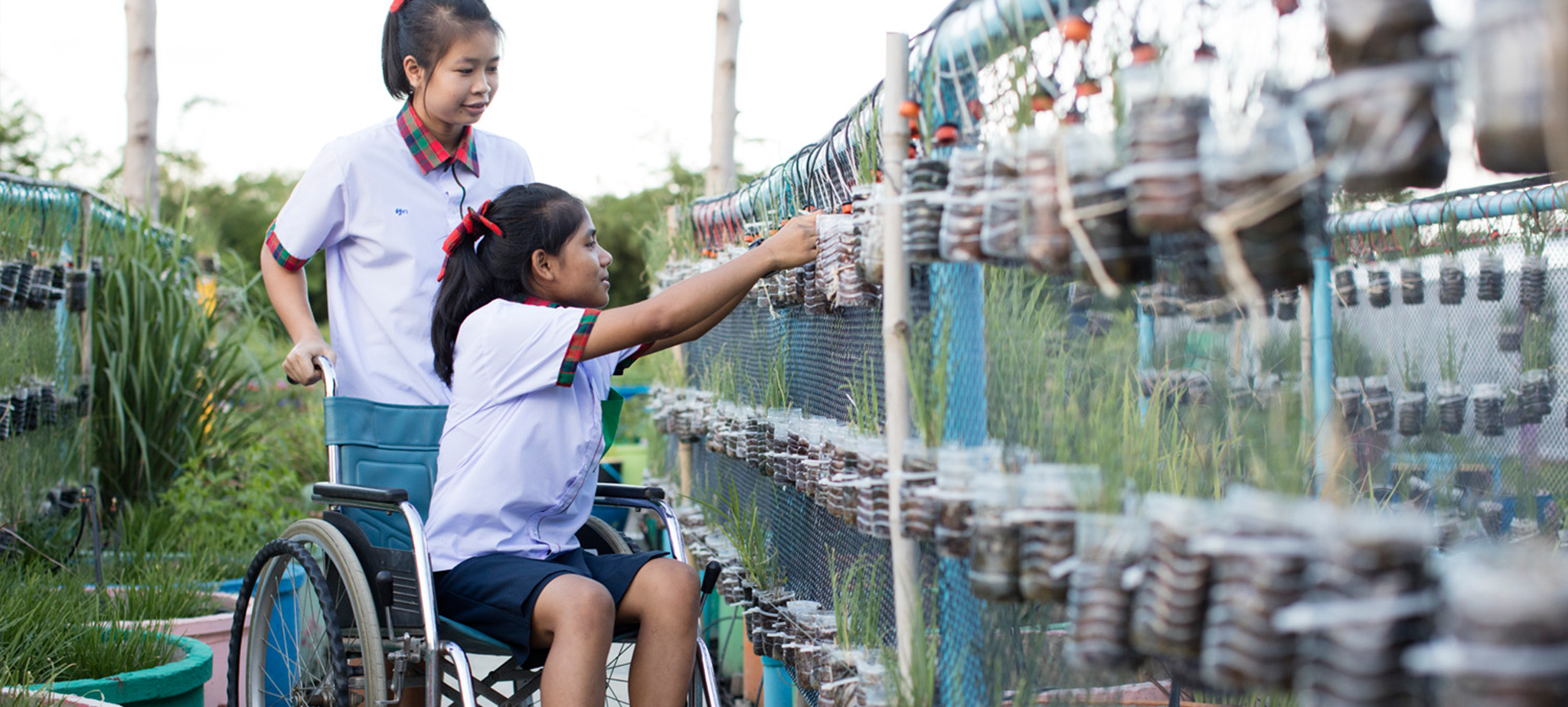
Equipped with expanded awareness of the world through the public cloud, Sai set her sights higher. Now studying to be an English teacher at Khonkaen University’s international program, she aspires to pay it forward by helping to transform education in rural schools. “I would like to be a teacher who can make students enjoy learning. The teaching must be planned around the students and it should be teaching for understanding, not only memorizing for exams.”
Indeed, learning is not only for life, but also about life. As Sai says: “Another important part of preparing the students for their future is teaching them life skills. I want my future students to grow up to be good people, who help to improve society.” Bamboo School students, energized by the possibilities of generating ideas and initiative through the cloud, exercise self-motivation and responsibility to an exceptional degree. They help manage the school’s budget, make presentations to visitors, and even help conduct job interviews for teachers and recruit new students.
Asia already has hard infrastructure for information technology almost everywhere. What it needs is software and content to enhance productivity and connectivity, to bring about new global mindsets for economic and social empowerment. This is why there is an urgent need to “take technology to where people are”, in the words of Mechai Viravaidya, chairman of the Population and Community Development Association (PDA), Thailand’s largest non-government organization (with 600 employees and 12,000 volunteers) that runs the Bamboo School. “The school is the perfect launchpad for a very good rocket which contains issues on income, health, education and many other things that we want to reach the people on the end of the line.”
PDA is leading the way for the 2,000 NGOs in Thailand that can benefit from the US$1 billion of resources in cloud computing, machine learning and artificial intelligence that Microsoft has pledged to give to 75,000 non-profit and research organisations globally over three years.
Mechai, a former Cabinet Minister, is absolutely sure of the power of cloud technology to connect people to whole new worlds of knowledge and opportunities, to spur innovation and initiative. This will enable them not only to earn higher incomes, but also have better health, democracy, morality, happiness… in short, “to become a better human being”. To him, these benefits should extend also to inmates in jail, monks in temples, refugees in camps, and the half a million stateless people whose parents are illegal immigrants unrecognized by the state.
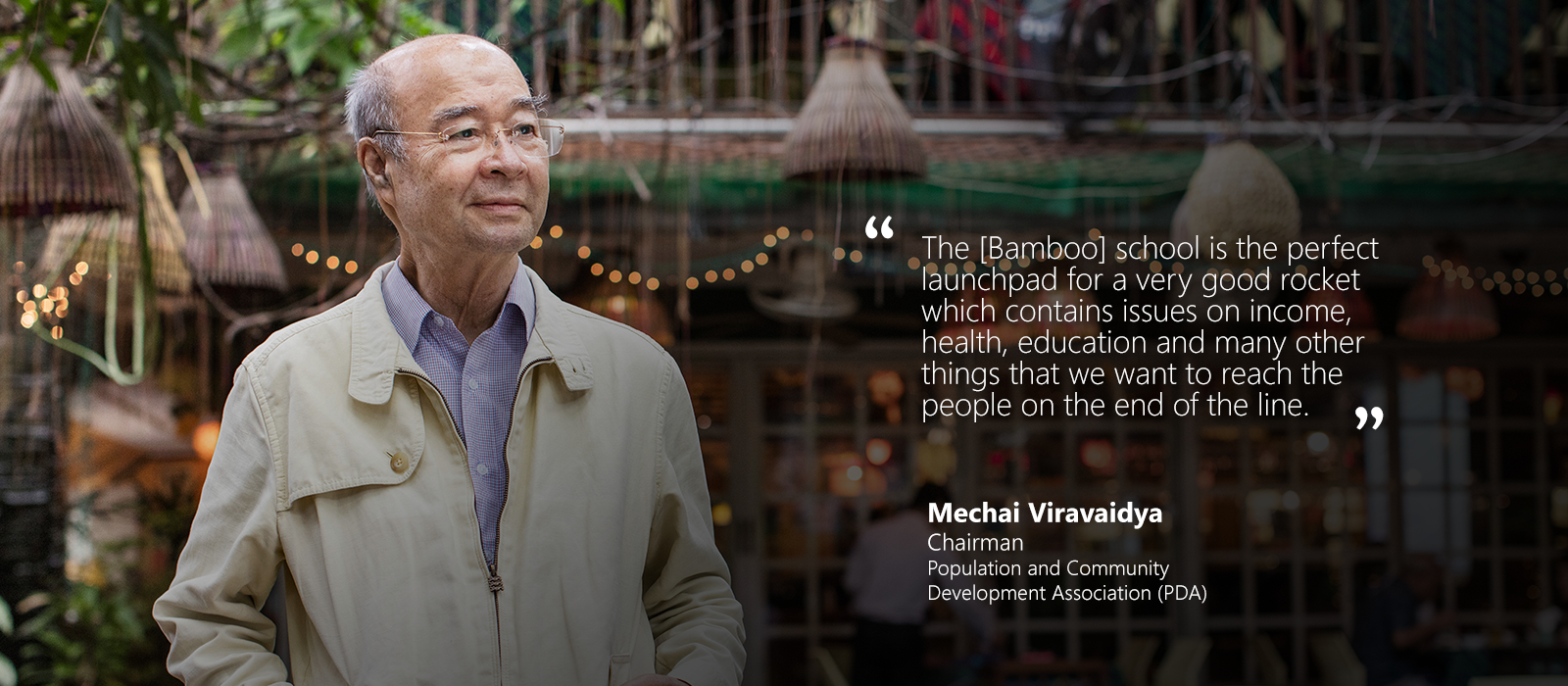
To help make this all this happen, Microsoft’s employee volunteers like Panjaporn Vittayalerdpun have been helping out at the Bamboo School since 2014. Volunteers leverage the cloud in diverse ways using cloud technology way, including such as “virtual mentoring” for 30 students at a time over Skype for Business, teaching farmers to use social media to advertise their produce and earn more, and helping NGOs use collaborative software such as Yammer and Sharepoint for more productive communication and resource management.
“It’s about the opportunity to give back, for others to learn from us. I feel happy that I can help them,” Panjaporn says.
By connecting people, ideas and opportunities so easily and powerfully, public cloud can indeed bring about public good, and be transformative with “real impact on how people live the outcomes of their lives”, as Microsoft CEO Satya Nadella said during a keynote speech when he visited Bangkok as part of an Asia tour. “To us, empowerment is about technology in the hands of people, where it transforms itself into better outcomes for people, and into institutions and institution-building outlasting people.”
That commitment saw Nadella announce in January 2016 the company’s decision to donate $1 billion of Microsoft Cloud Services to serve nonprofits and university researchers globally over the next three years. Microsoft’s three-part commitment focuses on ensuring the cloud can serve the public good in the broadest sense by providing additional cloud resources to nonprofits, increasing access for university researchers and helping solve last-mile Internet access challenges.
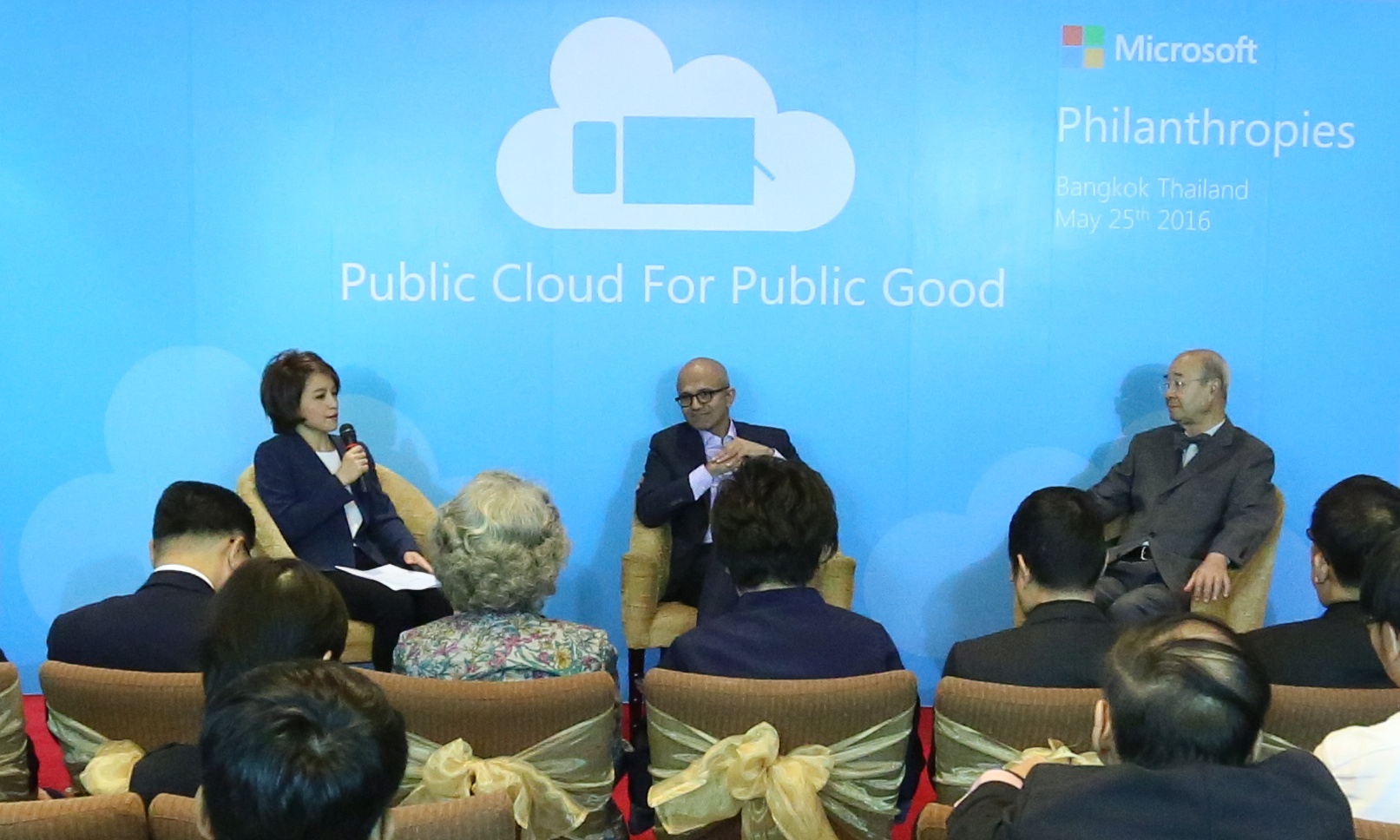
Like in Thailand, public cloud is also helping to bridge the digital and educational divides in Indonesia – a situation summed up in statistics such as that four Indonesian children drop out of school every minute.
In this area, Microsoft’s latest initiatives are in partnership with an NGO called YCAB (“Yayasan” is “Foundation” and “Cinta Anak Bangsa” means “loving the nation’s children” in Bahasa Indonesia).
YCAB Foundation runs some 70 Rumah Belajar learning centers across Indonesia, charging just US$1 a month, with 45 of them offering computer classes, including in coding and cloud technology. For Kemal Malik, a 2007 graduate of Rumah Belajar, the computer skills he gained won him a scholarship from an international marine insurance company, and later, a job in risk management in Jakarta. His boss, Kurniawan Nugroho, says of him: “The willingness to learn, the drive to achieve more – these are what he has now. Kemal is like a raw diamond.”

Veronica Colondam, founder and CEO of YCAB Foundation, whose overall vision is to touch the lives of five million youth by 2020, says: “We want to reach out to everyone, especially those at the bottom of the pyramid, to enable them to compete in the workforce. These programs give them hope.”
Microsoft and YCAB Foundation are also creating a job and skills portal called M-Powered, or GenerasiBisa.id, to provide job listings and online classes, and to foster in youth a mindset of being mobile, marketable and mission-oriented. The youth trained through M-Powered can eventually avail of BizSpark, another Microsoft initiative that offers free access to cloud services, software and mentorship for startups and helps young entrepreneurs benefit from cloud technology skills.
A critical part of efforts is ensuring the benefits of technology reach those who need it the most, which is where Indonesian startups such as Kelase play a key role. It is one of 12 global recipients of Microsoft’s Affordable Access Initiative grant, which will allow it to scale its business in delivering educational content and solutions that can be accessed with low bandwidth or even used offline in less privileged, often remotely located, schools in Indonesia.
While Japan is a more developed country, even there, public cloud has a huge role. It can help narrow the “opportunity gap”, where many young Japanese are “less globalized” than their counterparts in other nations, and so, can achieve much more if they learnt to operate in an English-speaking cross-cultural environment, with social commitment and more of a global mindset powered by cloud connectivity.
For some years now, Japanese youth – mostly from less privileged backgrounds and less “well-served” parts of Japan outside the larger cities like Tokyo – have been inspired to lead social change under a Microsoft-Tomodachi (“friends” in Japanese) collaboration with the Seattle-based NGO iLeap, providing training stints in leadership skills and cloud technology in the USA for visiting groups of Japanese youth.

In the program’s next three-year phase, to be run twice yearly, Japanese youth can go one step further, to take up internships with some of Japan’s 34,000 NGOs, in sectors including disaster recovery in earthquake zones. These interns will help bring to the NGOs the benefits of cloud technology to boost operational efficiency and organisational resilience, for example, to facilitate data recovery and rebuilding the NGOs’ work. Dr Britt Yamamoto, founder and executive director of iLeap, sees the program’s new phase having the potential to touch as many as 500,000 lives by 2019. “This is a powerful creative opportunity to change the future of Japan.”
Kurumi Suzuki, 22, a Kanagawa University undergraduate and one of nearly 80 graduates of the Microsoft-Tomodachi program, was inspired to start work full-time in an English language school. She says: “Because of this program, I realize that I am a leader who can make a better society in Fukushima and Japan. I think the most important thing to rebuild Fukushima – an area hit by a quake and nuclear accident in 2011 – is for people to love their hometown and stand up for it themselves. I want to be a leader that can make that happen.”
As technology has become an integral part of people’s daily lives around the world, it has become not only important for youth to know not only how to use technology, but also how to create technology to help them become the innovators and drivers of growth and opportunity in their communities.
Cloud computing is one of the most important and transformational technologies of our time, and it has the potential to bridge the digital divide, which is why we must all do our part to help spread the benefits of cloud computing to all.
Koh Buck Song is an author who has written and edited over twenty books, and a consultant in branding, communications strategy and corporate social responsibility in Singapore. He drove the positioning of Singapore as a “global entrepolis” as former Head of Marketing, Corporate Communications and Strategic Planning at the Economic Development Board from 1999 to 2005. Buck Song was also a former a political supervisor for The Straits Times. He graduated from the University of Cambridge and the University of London in the United Kingdom, and from the John F. Kennedy School of Government at Harvard University in the US, where he was a Mason Fellow and earned a master’s degree in public administration.





